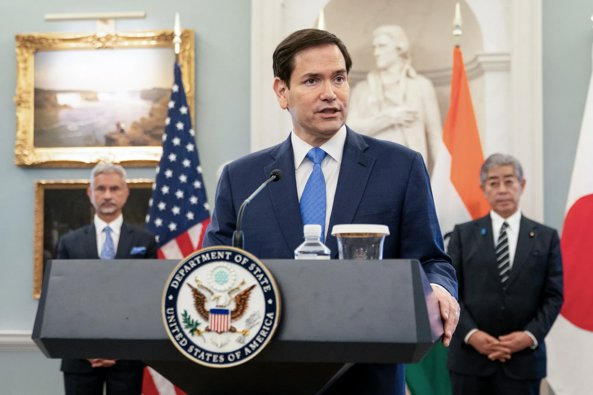
State Dept Investigates AI Rubio Impersonator
AI-driven impersonator mimicked Secretary Marco Rubio, targeting US and foreign officials; State Department investigates.
State Department Scrambles to Address AI-Fueled Impersonation
The State Department is conducting a formal investigation after an impostor used artificial intelligence to impersonate Secretary of State Marco Rubio, reaching out to high-level officials in the United States and abroad. According to internal cables and senior U.S. officials cited by the Washington Post, the unidentified actor employed AI-powered voice and text technology to convincingly mimic Rubio’s speech and writing style.
Reports indicate that the impersonator contacted at least five individuals outside the State Department, including three foreign ministers, a U.S. governor, and a member of Congress. The actor left AI-generated voicemails on Signal and, in at least one case, sent a text message inviting recipients to communicate further using the encrypted platform. The ruse reportedly began in mid-June, using a Signal account with the display name Marco.Rubio@state.gov—a false address unrelated to the secretary’s official account.
Cybersecurity Concerns and Official Response
State Department spokesperson Tammy Bruce confirmed the ongoing investigation, stating, “The department takes seriously its responsibility to safeguard its information and continuously take steps to improve the department's cybersecurity posture to prevent future incidents.” Bruce declined to detail Secretary Rubio’s personal response, emphasizing that further updates would be provided when available.
While the actor’s intent is suspected to have been the manipulation of government officials in hopes of gaining access to sensitive information or accounts, officials described the operation as “not very sophisticated” and ultimately unsuccessful. Nevertheless, the incident has renewed concerns about the growing risks posed by artificial intelligence in the realm of cybersecurity, diplomacy, and government operations.
Bruce concluded, “We live in a technological age that we are well enmeshed in,” highlighting the increasing complexity of safeguarding official communications against emerging digital threats. The department continues to monitor the situation, reviewing and strengthening measures to prevent similar incidents in the future.






